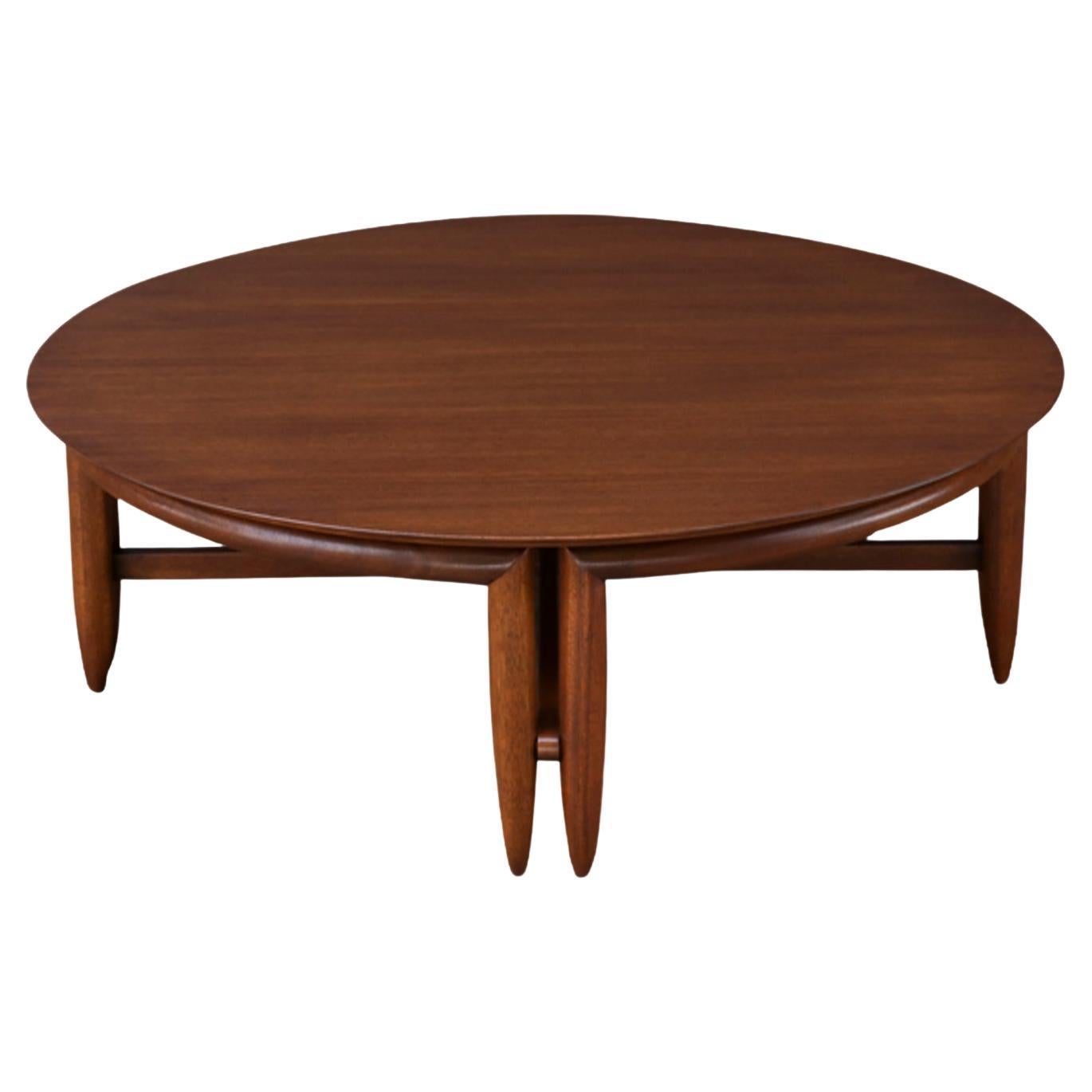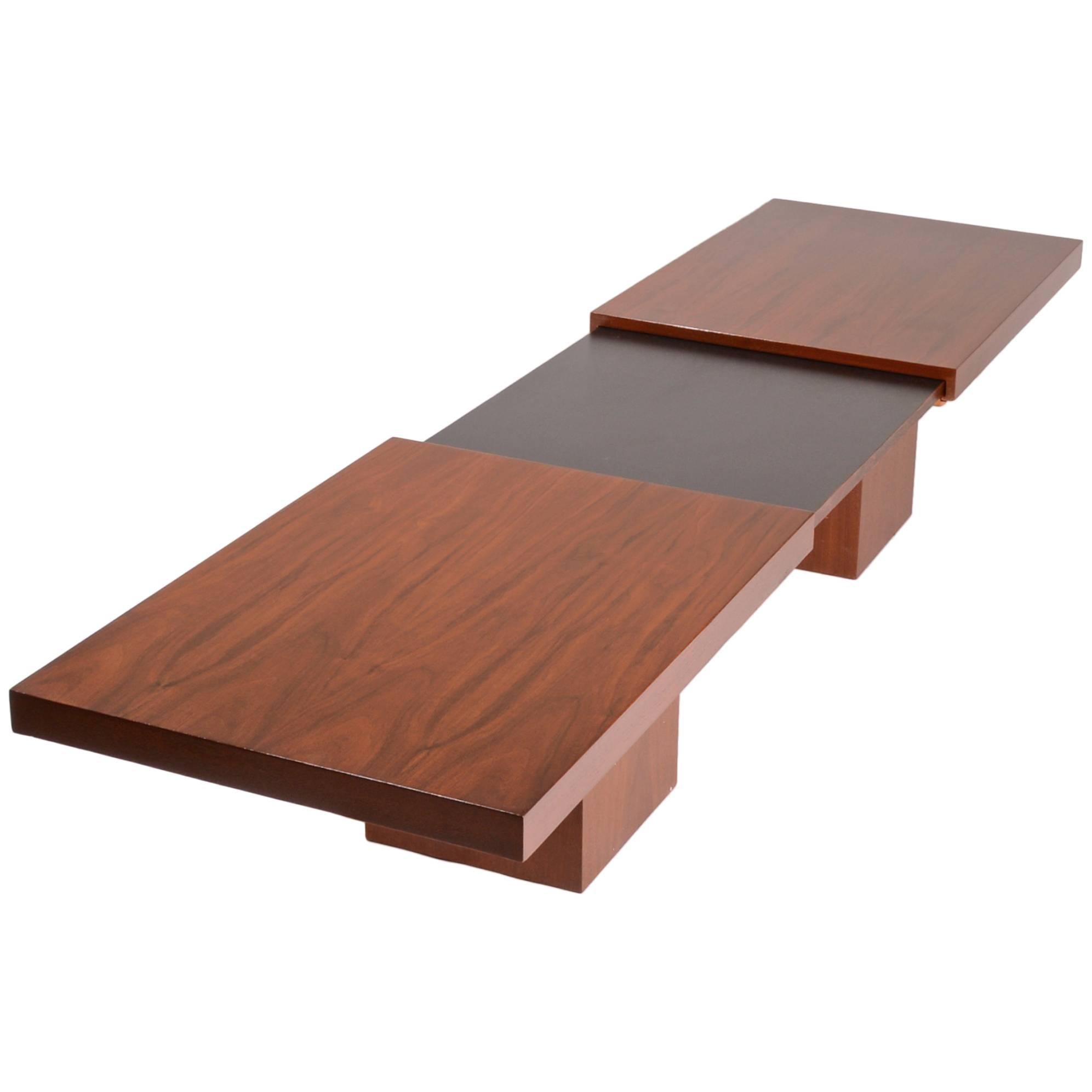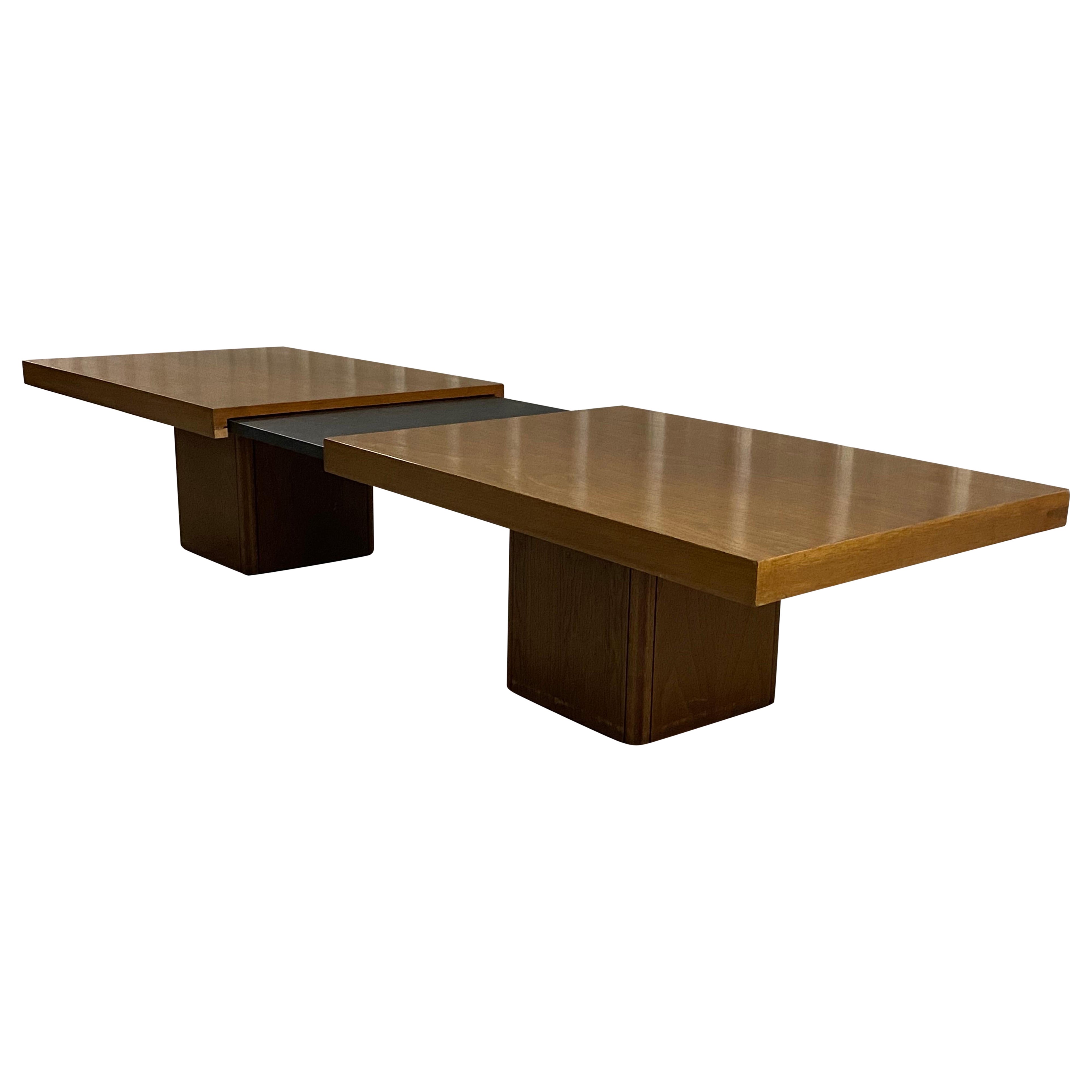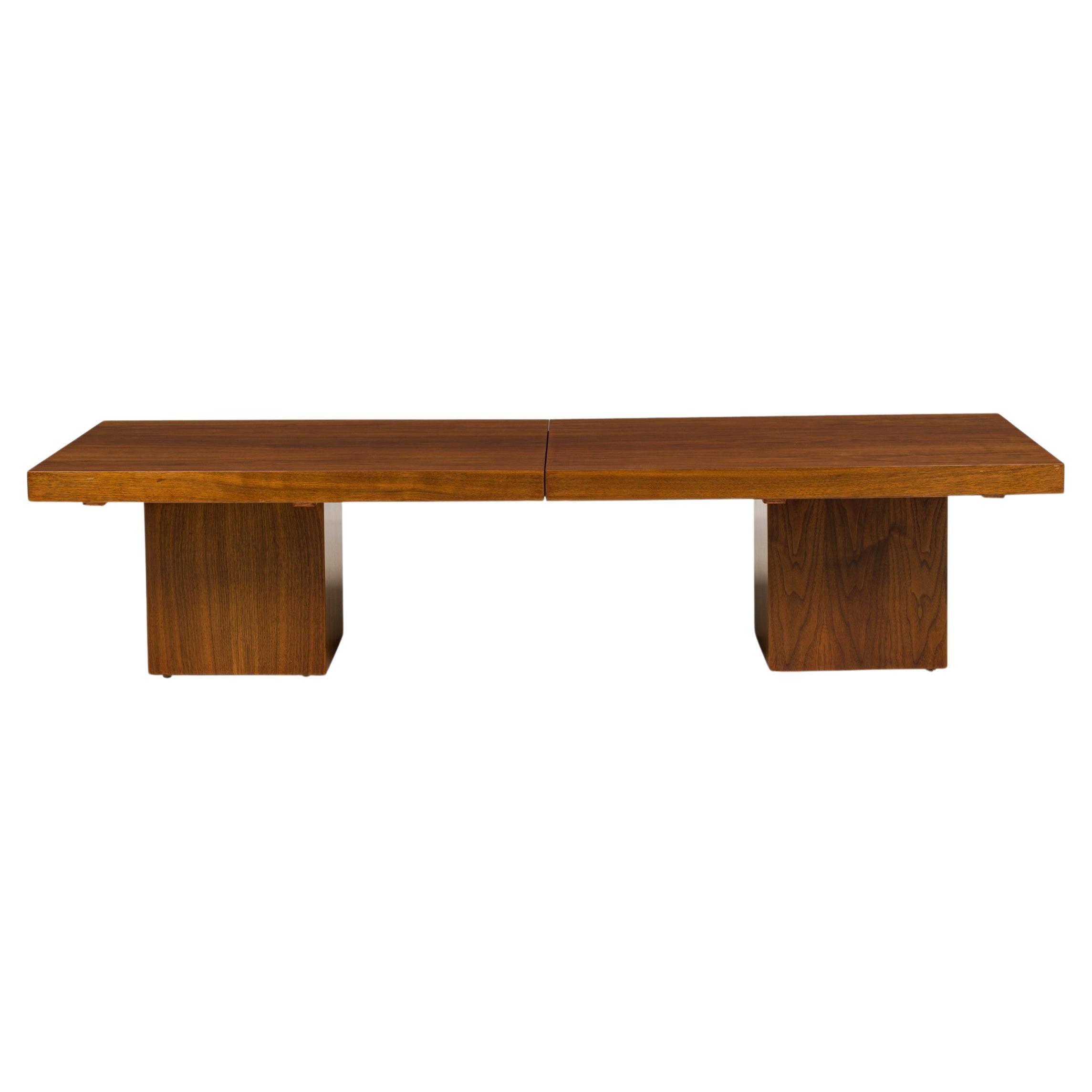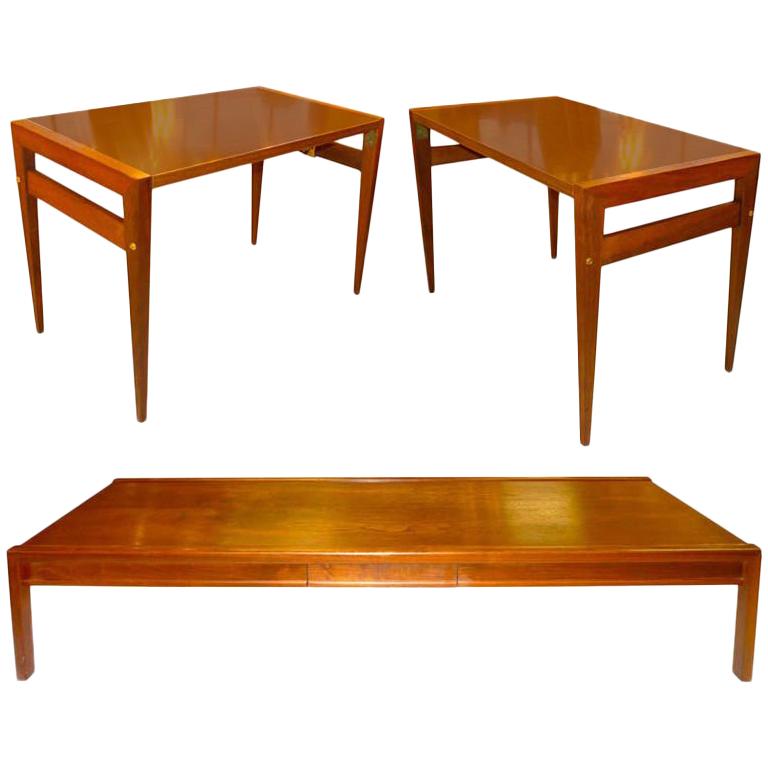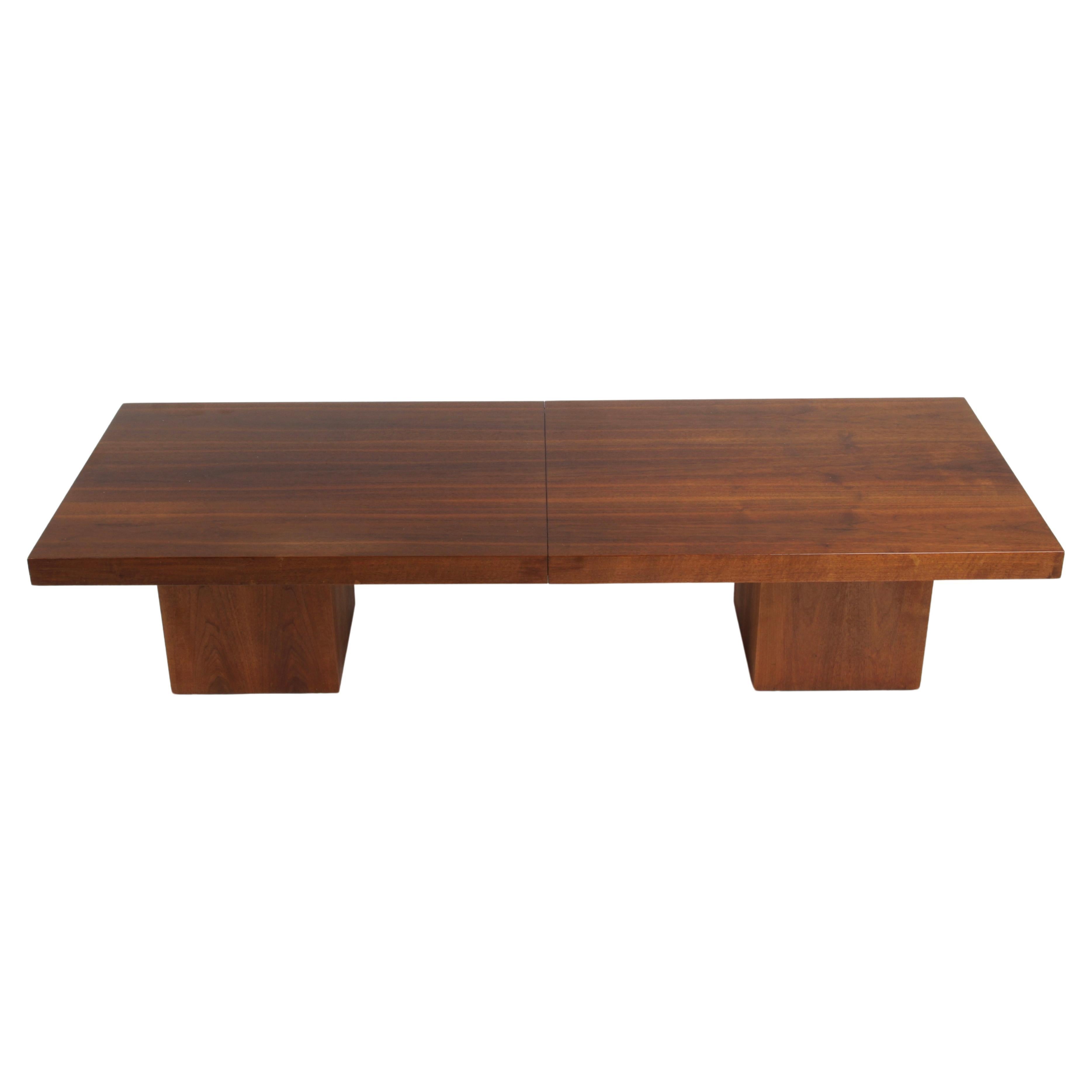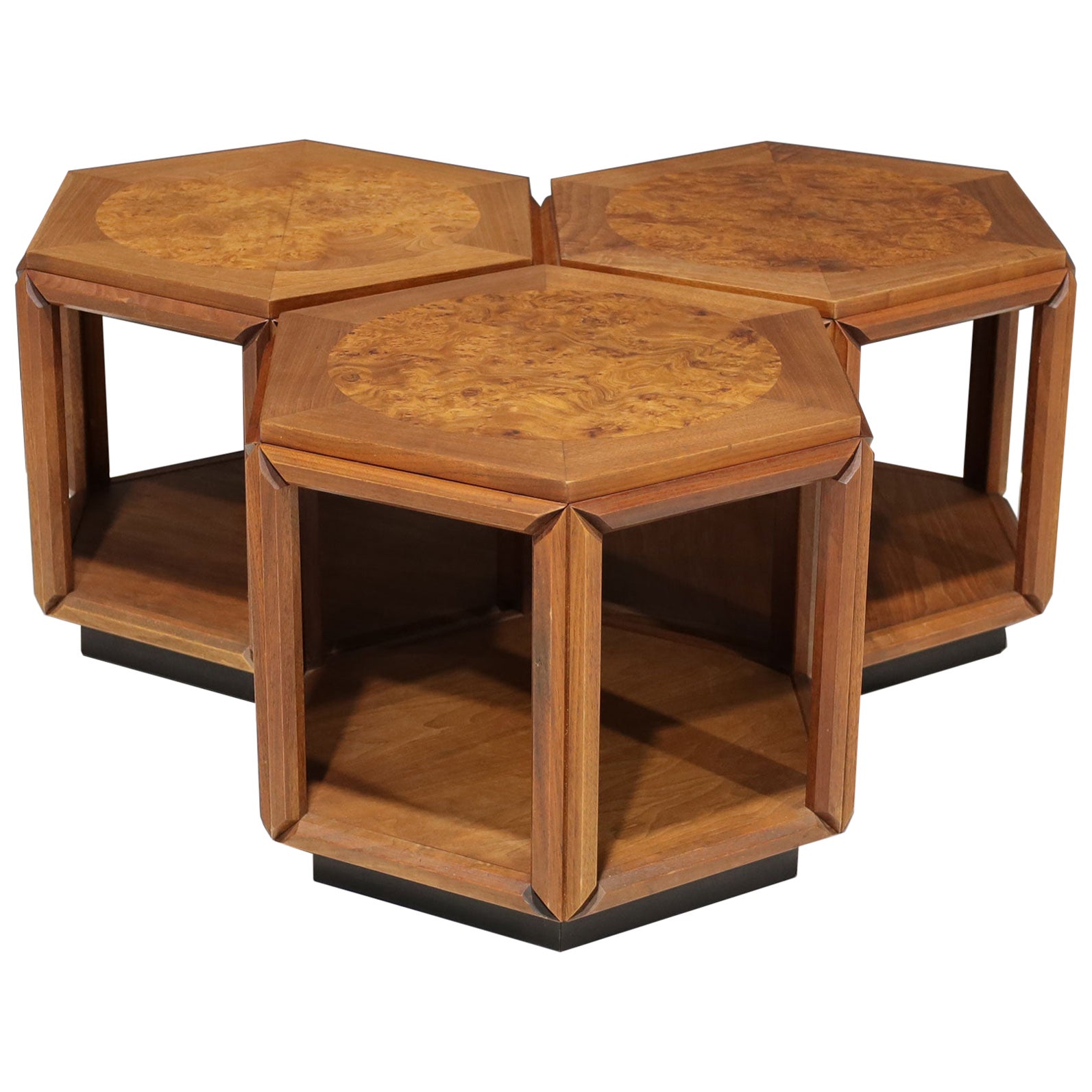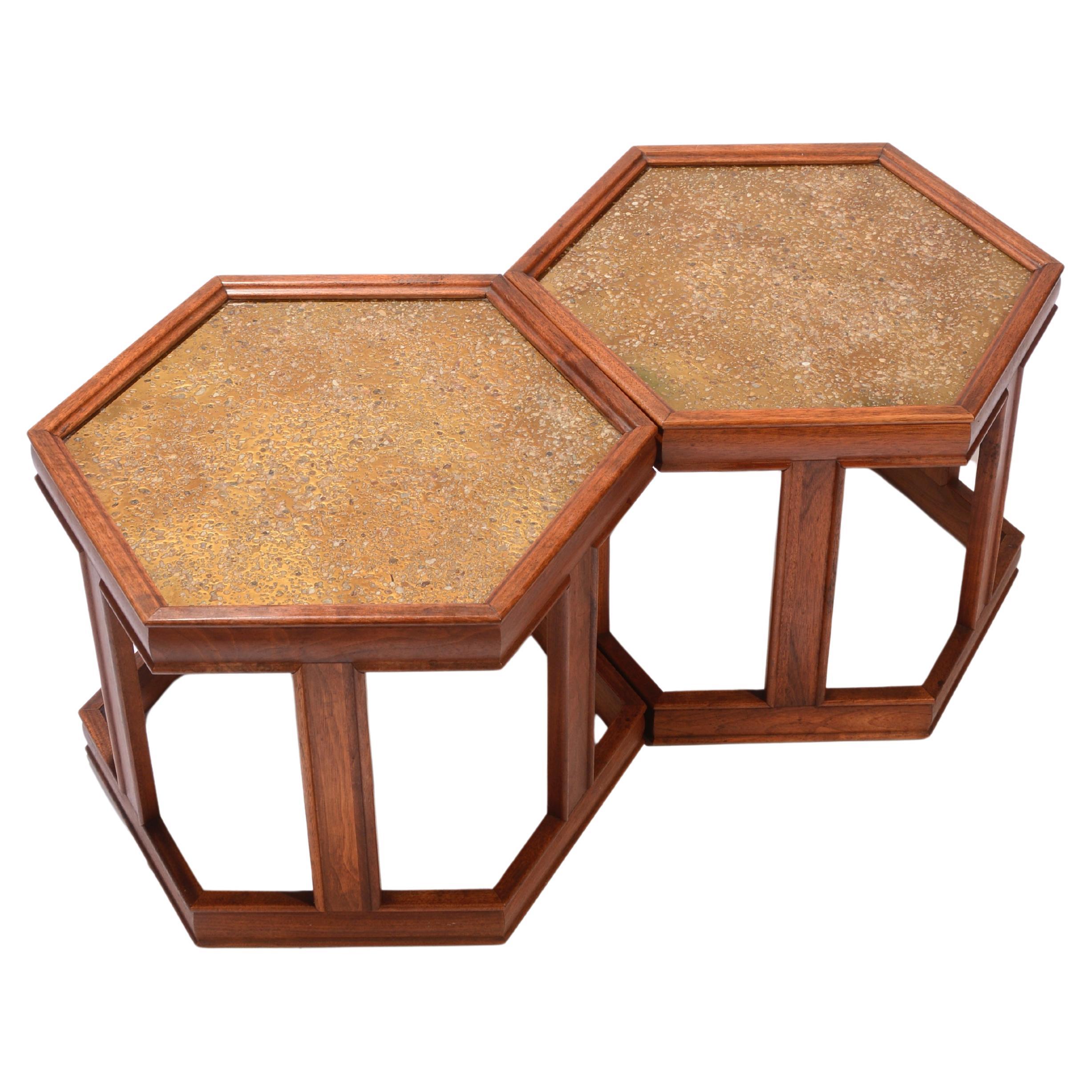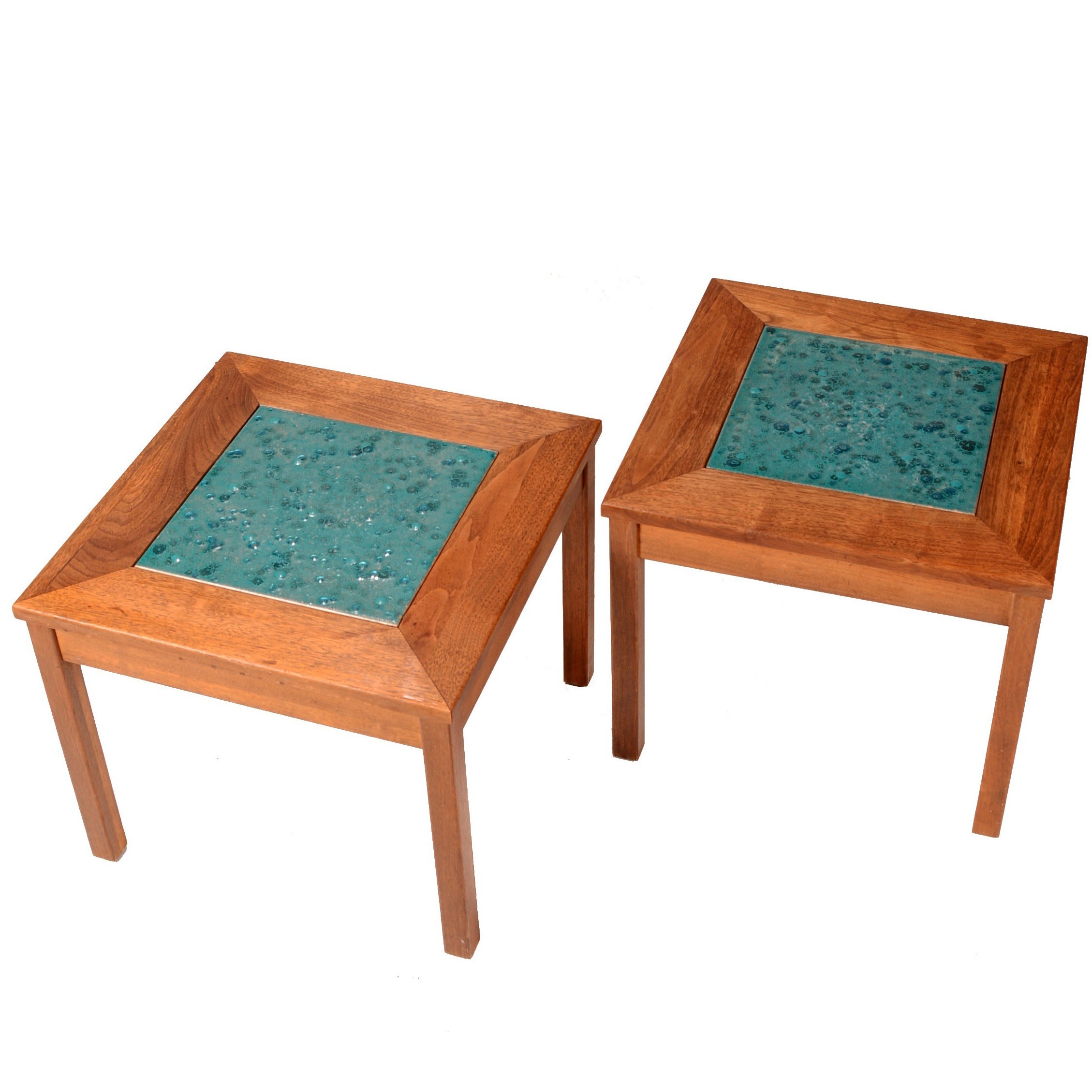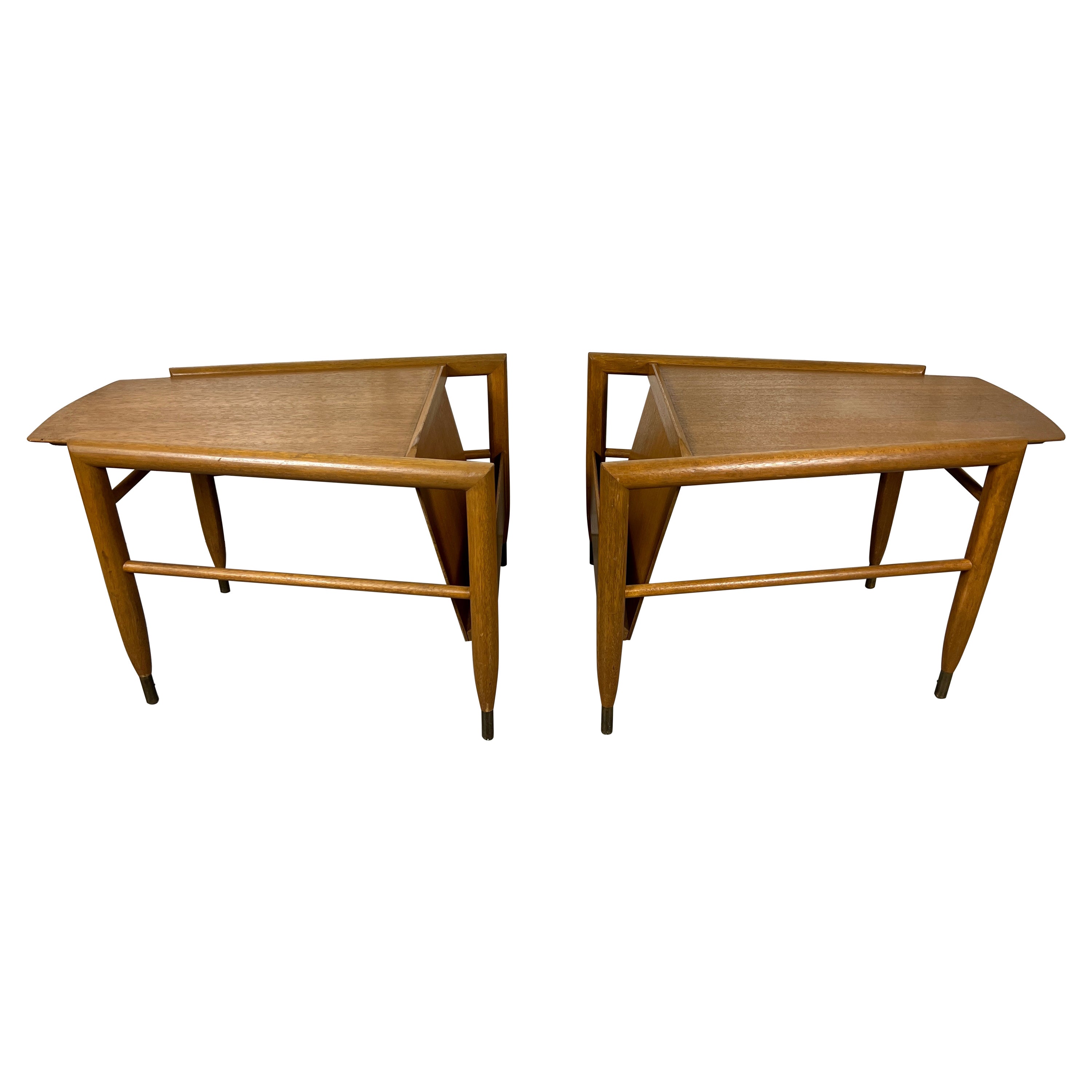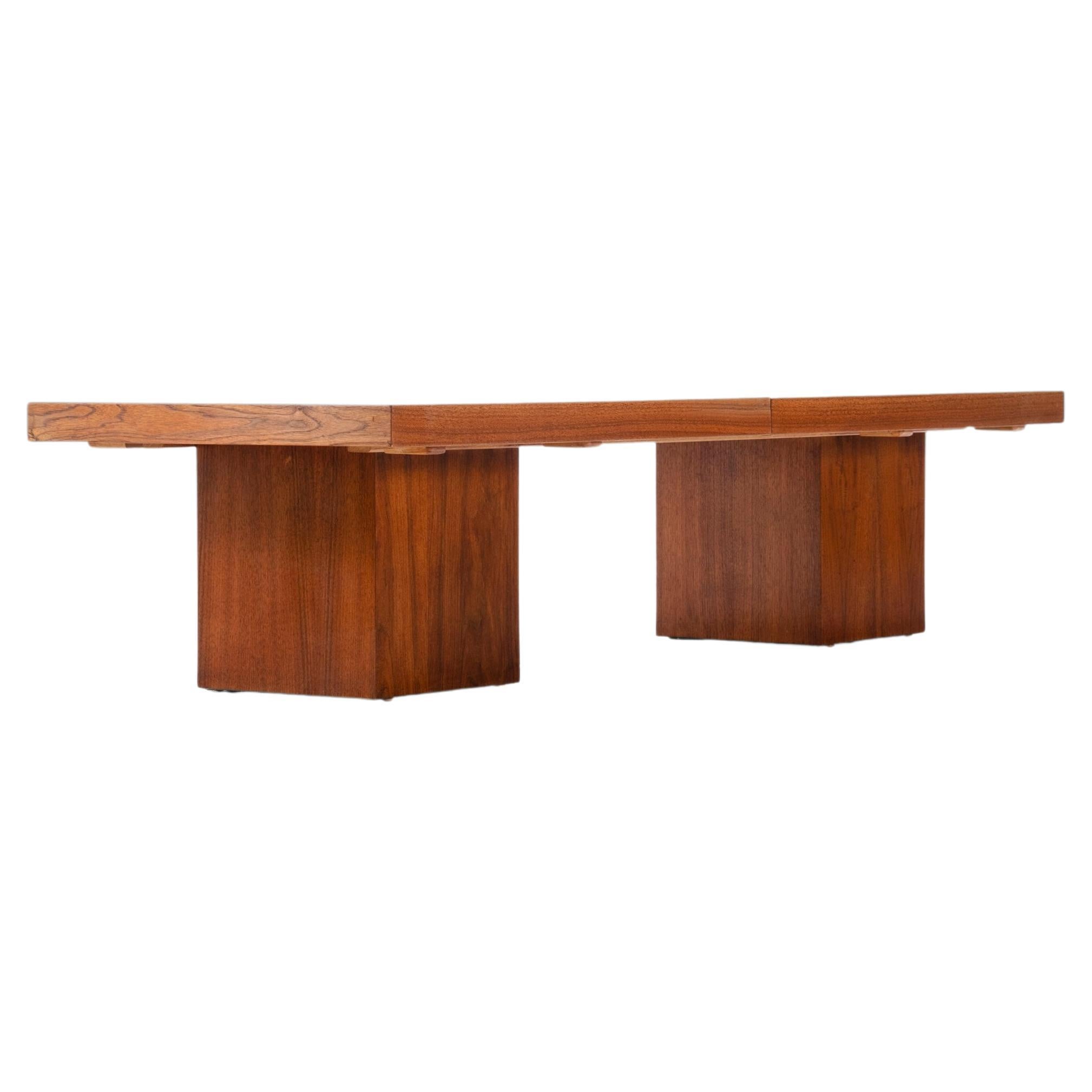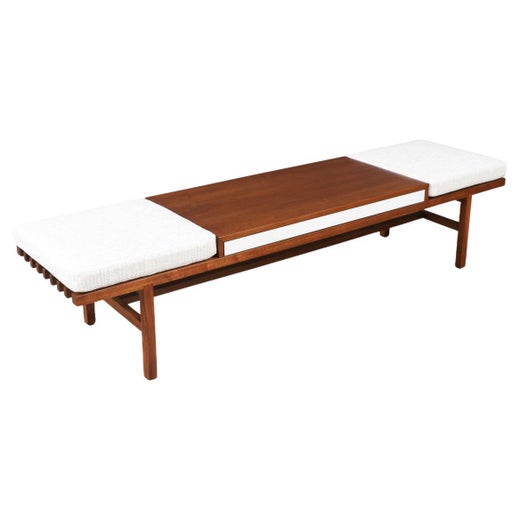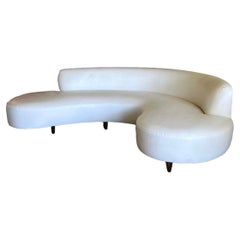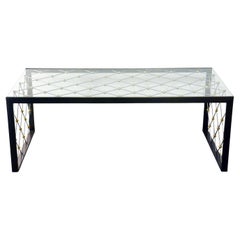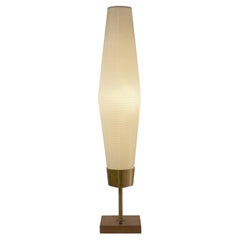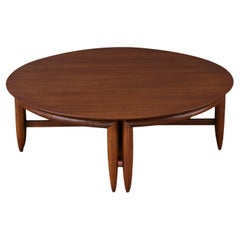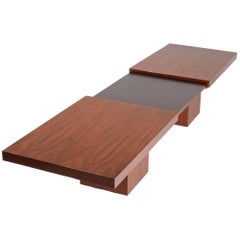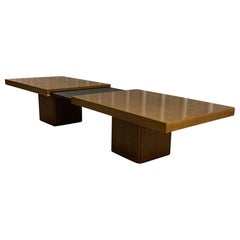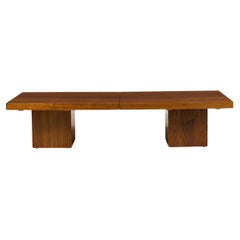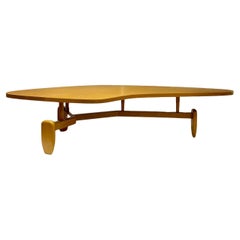
John Keal for Brown Saltman Mahogany Biomorphic Outrigger Coffee Table, ca 1950s
View Similar Items
John Keal for Brown Saltman Mahogany Biomorphic Outrigger Coffee Table, ca 1950s
About the Item
- Creator:Brown Saltman (Manufacturer),John Keal (Designer)
- Dimensions:Height: 14.5 in (36.83 cm)Width: 65.75 in (167.01 cm)Depth: 29 in (73.66 cm)
- Style:Mid-Century Modern (Of the Period)
- Materials and Techniques:
- Place of Origin:
- Period:
- Date of Manufacture:Circa 1950s
- Condition:Refinished. Wear consistent with age and use. Good vintage condition. Table has been refinished and has a golden mahogany tone to the restored finish.
- Seller Location:Cathedral City, CA
- Reference Number:Seller: OC 97221stDibs: LU8352241386742
John Keal
At a time when many furniture makers were turning to cheaper materials for mass production, mid-century modern designer John Keal didn't shy away from utilizing quality woods in his work, like mahogany and walnut to create his coffee tables, cabinets and benches.
While little is known about Keal, he was part of a powerhouse group that collaborated with Los Angeles furniture manufacturer Brown-Saltman in the 1940s and ‘50s. Other designers who had partnered with the firm during the mid-20th century included Greta Magnusson Grossman, Paul Frankl, Paul Laszlo, and Gilbert Rohde, a New York City-born designer who would help legendary Michigan furniture manufacturer Herman Miller avert financial disaster during the Great Depression.
Brown-Saltman was established in 1923 and initially specialized in reproductions of furniture in period styles. When cofounder David Saltman met Frankl, the firm had discontinued its Early California collection and was producing modern furniture.
The Austrian-born Frankl was already a big name in decorating in California in the late 1930s — his clients were Hollywood movie stars who were drawn to pieces such as his Art Deco-style Skyscraper series and other biomorphically shaped designs that showed the influence of Chinese and Japanese forms (Brown-Saltman’s offerings were frequently demonstrative of Asian influences). Frankl had become interested in producing inexpensive furniture for middle-class consumers, and his 1940s-era collaboration with Brown-Saltman was a success — print advertisements touted his name as well as the fact that these furnishings, which drew on the clean lines of chrome-framed Bauhaus pieces but instead integrated organic materials, were intended for modern homes.
Keal’s work also fit snugly into what we now call California modernism, which derived from the Bauhaus and International Style movements, and revolutionized the way we build homes today, not only in the Golden State but across the globe. Keal created sleek end tables in walnut and topped with enameled copper and upholstered low-profile dining chairs framed in bleached mahogany for Brown-Saltman as well as other West Coast mid-century brands such as Glenn of California and Modeline.
Find vintage John Keal seating, storage pieces and tables on 1stDibs.
Brown Saltman
The enduring modern design legacy of Brown Saltman was born from the collaboration between designer Paul Frankl and furniture manufacturer David Saltman. Together, they created stunning mid-century modern solid wood furniture with Art Deco influences. Brown Saltman side tables, cocktail tables and credenzas are known for their thoughtful designs and exquisite details.
Frankl was a leading American designer who came to prominence in the 1930s by making rattan furniture for Hollywood stars. However, he dreamed of bringing his designs to the public. That chance came in 1939, when he met Saltman at a party. Saltman was the head of the Los Angeles-based Brown Saltman, which, at the time, specialized in furniture reproductions.
He asked Frankl to create a furniture line, which was released in 1941. It was a hit, with sales exceeding expectations. Frankl quickly started work on a new line for mass production. It featured simplified designs and less expensive materials like combed wood and textured plywood. This line was even more successful, and Frankl started on a third.
In 1942, Frankl and Saltman signed an extended contract to continue their collaboration. However, Saltman died in a traffic accident the next day. World War II also brought Brown Saltman production to a standstill. After the war ended, Frankl decided not to renew his contract.
Brown Saltman partnered with many other designers over the years. A walnut sideboard by Van Keppel-Green for Brown Saltman was featured in the Museum of Modern Art’s 1950-51 Good Design exhibition. Architect and interior designer Paul Laszlo also designed a commercial furniture line for the company in the 1950s.
Brown Saltman dissolved in 1960, but its well-built and beautifully designed furniture remains in high demand today.
On 1stDibs, find vintage Brown Saltman tables, storage cabinets, seating and more.
More From This Seller
View AllMid-20th Century American Mid-Century Modern Sofas
Upholstery, Naugahyde, Foam, Walnut
21st Century and Contemporary American Mid-Century Modern Coffee and Coc...
Brass, Bronze, Stainless Steel
Mid-20th Century American Mid-Century Modern Table Lamps
Metal, Brass
Mid-20th Century American Mid-Century Modern Patio and Garden Furniture
Metal, Wrought Iron
Mid-20th Century American Mid-Century Modern Candelabras
Iron
Mid-20th Century American Mid-Century Modern Table Lamps
Metal
You May Also Like
Vintage 1950s American Mid-Century Modern Coffee and Cocktail Tables
Walnut
Vintage 1960s American Mid-Century Modern Coffee and Cocktail Tables
Formica, Walnut
Mid-20th Century American Mid-Century Modern Coffee and Cocktail Tables
Laminate, Formica
Mid-20th Century American Mid-Century Modern Coffee and Cocktail Tables
Wood
Vintage 1960s American Mid-Century Modern Coffee and Cocktail Tables
Walnut
Vintage 1960s American Mid-Century Modern Coffee and Cocktail Tables
Walnut
